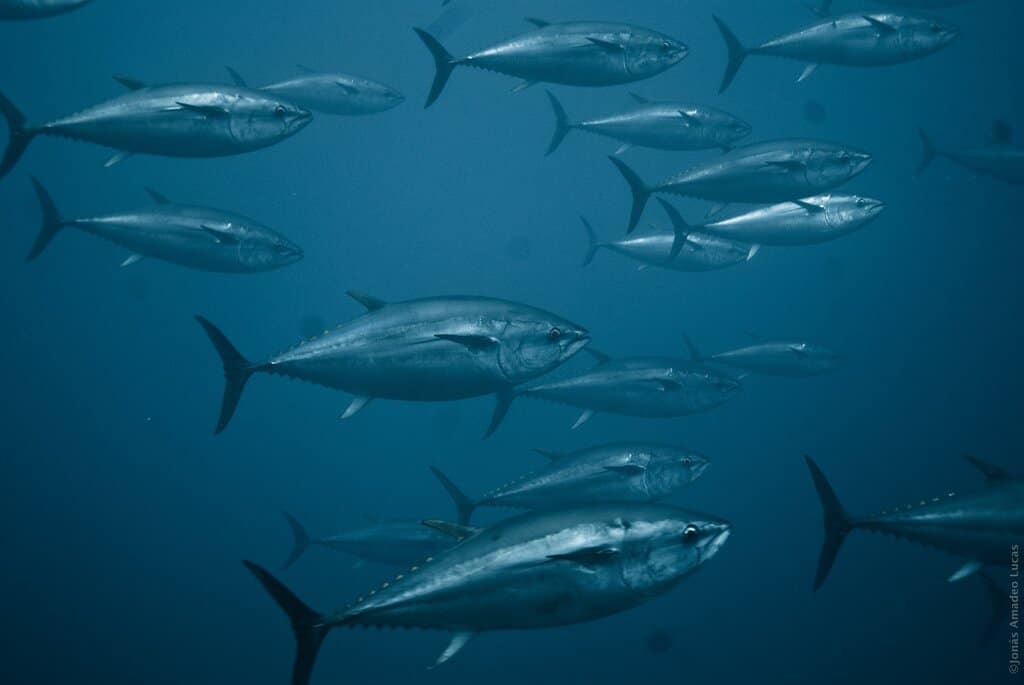Tuna Are Finally Bouncing Back From The Brink Of Extinction
It's been a decade since the plight of the oceans was first brought to my attention. I've always cared for animals and the environment, but the oceans called to someone who grew up in Wisconsin, about as far away from the ocean as one can be. Carl Safina's work studying seabirds and sea turtles, describing their beauty and the threats they face, inspired me, as did his work decades ago to restore America's fisheries.
However, it was Sea Shepherd's direct-action approach that appealed to me, and the atrocities and corruption they exposed that angered me. One that stuck out in my mind was their campaign Operation Blue Rage, which occurred in 2010 and 2011. In the first year, they were able to free 800 endangered bluefin tuna off the coast of Libya in spite of being attacked with hooks and rocks. In the second year, they discovered an even larger operation with nearly a dozen vessels working together to illegally catch thousands of tuna. Instead of assisting them, a French vessel overhead warned that they would take action against Sea Shepherd for trying to enforce the law. The tuna were caught, taken to fattening pens off Malta, and slaughtered. They were being sold to fish markets, primarily in Japan, for upwards of hundreds of thousands of dollars per fish. Mitsubishi was profiting off this diminishment in spite of the fact that they had tens of thousands of bluefin tuna sitting in warehouses. Why? Extinction is profitable: if the bluefin went extinct, the animals in the warehouses would be priceless. I saw all of this unfold in the Operation Bluefin special in 2012. It angered me, it made me feel helpless, and then it made me smack myself in the face and get involved.
It appears that the absurdity of the situation had a similar effect on other activists, activists who demanded change. Today, those activists scored a major victory with the news that the four major tuna species are recovering: skipjack, bigeye, yellowfin, and albacore tuna populations have seen their populations rise in the past decade with the enforcement of quotas and a crackdown on IUU fishing. Even the Eastern Atlantic population of bluefin, the one Sea Shepherd sailed into a war zone to defend, has risen by nearly 25 percent. However, it's not all good news: the population of Western Atlantic bluefin, those who live in the Gulf of Mexico, have declined by half in the same period, largely thanks to the 2010 BP oil spill.
Sea Shepherd has worked for decades to protect tuna. Their campaigns to stop the slaughter of dolphins in the Eastern Tropical Pacific between 1988 and 1992 also saved tuna, as did their work investigating, studying, and exposing the effects of the BP oil spill with Operation Gulf Rescue and Operation Toxic Gulf. Their campaigns in Africa are probably the most critical: in Tanzania, Operation Jodari saw 48 vessels busted for illegal activity, from polluting habitat to illegally taking sharks and tuna to destroying the mangroves critical to fish breeding, and fined tens of millions of dollars in a matter of just six months. Their campaigns Operation Albacore and Operation Guegou have worked to protect the Gulf of Guinea, one of the most critical habitats for tuna in the world.
By 2048, there will be more plastic in the ocean than fish if we do nothing. A lot of progress has been made in protecting tuna from extinction, but now is the time to double down on our efforts and work to fully restore their populations to 1980s levels. At the same time, bad news was delivered for sharks and rays: their populations continue to decline. There is no fight more important than the fight to protect life on Earth, and it is just beginning. Victories must be celebrated briefly and serve as a call to action to keep moving forward.

Comments
Post a Comment